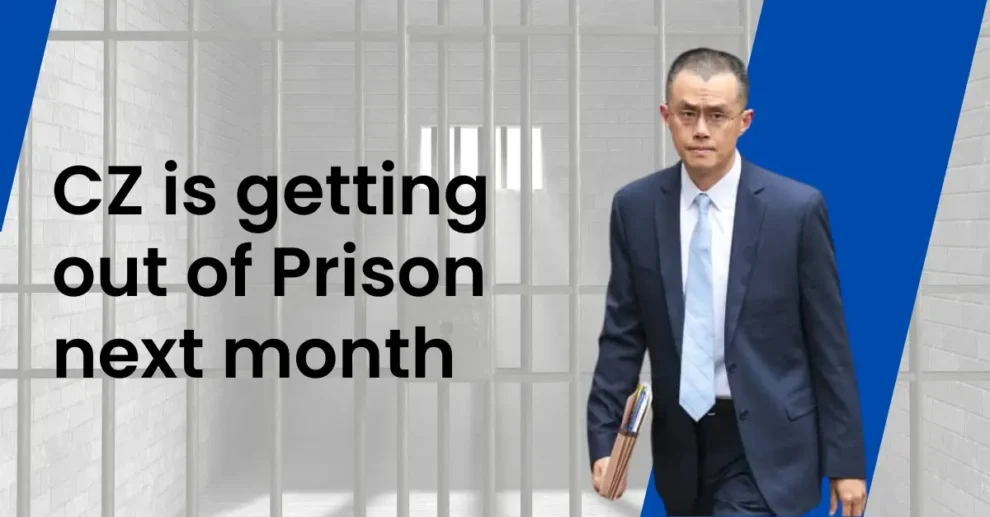Binance CEO CZ is getting out of prison next month after four month of federal jail for breaking anti-money-laundering regulations.
Changpeng Zhao, the former CEO and founder of Binance, was sentenced to four months in federal jail for breaking anti-money-laundering regulations while he was in charge of the biggest cryptocurrency exchange in the world.
Due to his assistance with the investigation and his status as a first-time offender, U.S. Judge Richard Jones expressed skepticism towards the government’s request that Zhao, also known as CZ, be sentenced to three years in prison, even though federal sentencing standards suggested an 18-month sentence.
During the sentence hearing, Jones stated that he thought Zhao had taken ownership of his acts and cited the more than 160 letters of support from friends, family, and business acquaintances as proof of Zhao’s moral character.
Since Zhao had admitted to only one count of failing to set up a sufficient anti-money laundering program at Binance, rather than money laundering or other more serious crimes, the government was ill-prepared to impose an above-guideline punishment.
Better Markets’ president and CEO, Dennis Kelleher, described the ruling as “less than a slap on the wrist” and termed it “an egregious miscarriage of justice” that “sends exactly the wrong message to criminals worldwide.” He mentioned that Zhao is still among the richest men in the world and that he still owns a portion of Binance.
In a court document, the US claimed that “the scope and ramifications of Zhao’s conduct were massive,” allowing hundreds of millions of dollars to be laundered from money obtained from ransomware payments, the sale of illegal substances, and stolen financial data.
Additionally, by allowing Americans to deal with Iranian individuals and companies in defiance of federal law, Binance and Zhao willfully compromised US sanctions against Iran. Although it seemed doubtful that Zhao would break the law again, the judge agreed with the government that some jail time was required to dissuade other would-be lawbreakers.
In November, Zhao entered a guilty plea for failing to run a successful anti-money-laundering program. At the same time, Binance acknowledged violating the Bank Secrecy Act by failing to register as a money-transmitting corporation and committing other infractions.
While Binance agreed to pay a $4.3 billion fine and employ an independent compliance monitor for three years to oversee its anti-money-laundering measures, Zhao personally consented to pay a $50 million punishment, a small portion of his estimated $40 billion net worth.
In an email, a representative for Binance stated that the business has upgraded its know-your-customer procedures, strengthened its anti-money laundering capabilities, and established a “culture of compliance, security, and transparency” in recent years.












Add Comment